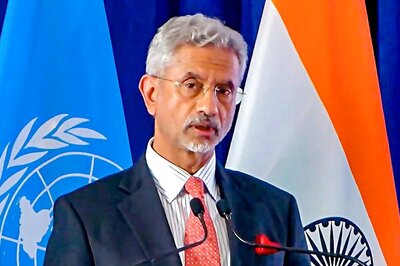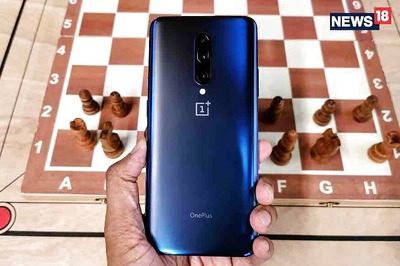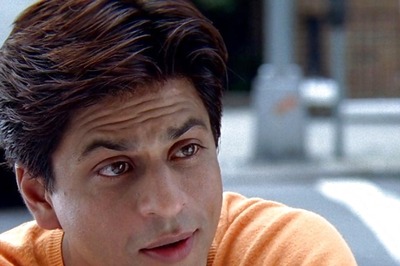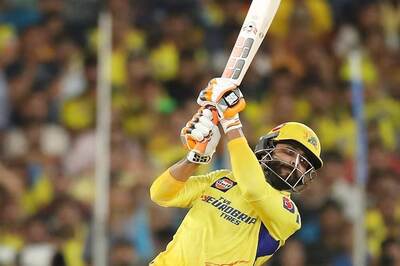
views
Jaunpur: Dev Narayan Yadav remembers being a much younger man when Kanshi Ram of the Bahujan Samaj Party (BSP) and Mulayam Singh Yadav of the Samajwadi Party (SP) announced their alliance.
As a loyal foot soldier of the SP, he accepted that union with open arms. The alliance did not last long and the bitterness resumed between the two rivals.
Twenty-five years later, Mulayam and Kanshi Ram’s political heir have repeated history. The 66-year-old former SP worker finds himself excited once again. The Pacchassi (85% masses), he says, are ready to take on the Pandrah (15% upper castes).
“Kanshi Ram said ‘yeh ladai pandrah aur pacchassi ke beech mein hai’ (This is a fight between the 15% and the 85%). The 85% were the poor, Dalits, Muslims and OBCs, while the 15% comprised the rich and prosperous. The 15% held all the power. Today, there is unity again. If not 85:15, I am seeing a 75:25 split in society. Some of our people have joined the other side hoping to get power. But by and large, Dalits, OBCs, Muslims and all oppressed sections are coming together once again,” he says.
A year ago, this sight would have been unimaginable. Samajwadi Party worker Vikram Ajoshi and BSP worker Narsingh Gautam are sitting at a tea shop in eastern Uttar Pradesh’s Jaunpur and chalking out the strategy for Jaunpur and Machhali Shahar Lok Sabha seats.
The BSP has fielded candidates from both these seats. SP workers say they have no qualms about campaigning for their former rivals. BSP counterparts say they will return the favour in neighbouring Azamgarh, where SP chief Akhilesh Yadav is the alliance candidate.
“We felt no hesitation in working with BSP workers since we share the same ideas. My experience of working with the BSP has been great. Wherever the BSP is contesting the election, our BSP friends have given us a lot of respect and we are doing the same on seats where we are contesting,” Ajoshi, a Yadav by caste, says.
Gautam, a Dalit BSP worker, interrupts him, but only to express solidarity and offer his two cents about the campaign in Azamgarh.
“We really want Akhileshji to win. There is no leader like him. We have told our comrades to campaign for SP candidates. After all, Behenji (Mayawati) has given us the order. Her word is the law for us.”
Among the driving forces behind the alliance is a feeling among a section of Yadavs and Dalits that dominance by upper caste Hindus has reached its peak since the BJP came to power in the state.
The SP and BSP are hoping their combined vote share of 44.6% will help them trump a rising BJP and stem the growing tide of Hindutva.
“If we are backward or Dalit, we will face problems with the administration. I am a Zila Panchayat member and I, too, am a victim of casteism. When there is an action, there is a reaction. When their oppression reached the peak, those who believe in Samajwad and Bahujanwad had to come together,” Ajoshi says.
Dev Narayan Yadav adds, “In our parts of the state, the gamcchha (a traditional cloth used in eastern UP) is a symbol of Thakurs and Bhumiars. If you go to a government office with a gamcchha, they will listen to you instantly and take you seriously. That is why even I have started carrying a gamcchha when I go for some work.”
Underpinning the rivalry between the SP and BSP are the caste tensions between Yadavs and Dalits.
Yadavs, an OBC community concentrated in central and eastern UP, have traditionally thrown in their lot with the SP and Dalits were believed to be BSP supporters. This is coupled with the notion that an SP regime would crack down on Dalits and a BSP regime on Yadavs.
Shyam Singh Yadav’s candidature from Jaunpur has become a symbol of the alliance’s unity.
As a Yadav in the BSP, he is placed in a unique position. “This notion (that SP and BSP oppressed each other’s cadres) is false. The SP and BSP are not just Yadav and Scheduled Caste parties. They have a very wide ambit. There is great unity in the alliance. It is real unity. You saw how Mayawati campaigned in Mulayam Singh’s constituency Mainpuri. Did you ever think this would happen? This is a message that all workers should see. There is now an emotional connect between the parties.”
On BSP chief Mayawati's 63rd birthday, the ‘North Pole’ and ‘South Pole’ of UP’s politics came together.
Akhilesh Yadav announced that he would join hands with Mayawati, his arch rival, and jointly contest the 2019 Lok Sabha election.
But will the workers of both parties, who once saw pitched battles on the streets of Uttar Pradesh, show the same bonhomie that their leaders did?
In 2014, the SP was reduced to five parliamentary seats, while the BSP could not open its account.
The fight for survival prompted the former rivals to come together. The joint fight in the bypolls of Phulpur, Gorakhpur and Kairana gave them a fresh lease of life.
However, getting votes transferred in a Lok Sabha election is a very different ball game.
Tribhuvan Ram is canvassing the length and breadth of Machhali Shahar Lok Sabha constituency as the BSP candidate to cement this newly formed alliance. He says Mayawati’s word is enough for a vote transfer as the bypolls had proved last year.
“Our national president asked BSP workers to vote for SP candidates just four days ahead of the bypolls. You saw the result. In all the three seats, the BJP lost badly. SP workers are excited and attend all meetings. They are sometimes contributing more than our own workers,” he says.
However, the distrust has not fully dissipated. Some SP supporters are still sceptical of the BSP’s alleged practice of selling Lok Sabha tickets.
This deprives the assiduous SP workers of their due. Rahul Yadav, 25, says he broke ranks with his community and voted for the BJP in 2014, a decision he says he now regrets. However, he says he finds the alliance a little hard to stomach.
“Had the Samajwadi Party fought alone, it would have been better. There are two Lok Sabha seats in Jaunpur. They may win one of the seats, but they won’t win the Machhali Shahar seat. It would have been better if they had given tickets to ground workers. Now crorepatis are getting tickets. These candidates were never workers, people don’t know them,” says the young Yadav.
But committed cadres are convinced that an SP-BSP alliance is the silver bullet they needed to take down the BJP.
The saffron party has claimed that this is an unnatural, opportunistic alliance. But most workers of both parties say this is a coalition for social justice, an alliance of the ‘have nots’ against the ‘haves’. They say 2019 is a battle of the 15% against the 85%.
BSP worker Narsingh Gautam rues the day Kanshi Ram and Mulayam Singh Yadav parted ways. “Had the 1993 alliance stayed together, we would have formed the government in Delhi three or four times at least. Nobody could have removed us from power. Now the alliance is back and nobody can hold a candle to us.”




















Comments
0 comment